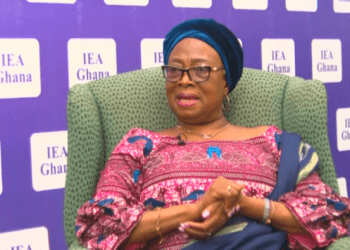The Convener of the Affirmative Action Coalition, Sheila Minka Premo, has indicated culture and religion are major constraints to women’s empowerment in Ghana. She argued that women are unlikely to be in leadership irrespective of their qualifications because Ghanaian cultural and religious practices do not favor the notion of women in leadership.
She stated that Ghana’s cultural and religious values are based on patriarchal principles that do not encourage women to take leadership positions thus, preferring them to be in the background. She reasoned that women are mostly discouraged from pursuing higher education and professional ambition due to the notion that, the woman is supposed to get married and have children and therefore, having a career may impede such expectations.
She indicated that Ghanaian women are marginalized in decision-making and governance. She noted that out of 275 Members of Parliament in Ghana’s Parliament, only forty (40) women, constituting 14.5% are in Parliament. At the local government level, less than 4% of women are being represented at the assembly meanwhile, 51% of Ghana’s population are women.
“This is not in accordance with the numerous international obligations that Ghana has as well as our own 1992 Constitution. So the whole essence of the Affirmative Action bill is to right this historical wrong based on our international obligations and the 1992 Constitution”.
Madam Sheila Minka Premo
Madam Sheila Minka Premo noted that most African countries with a sizeable number of women in leadership made it possible through conscious legislation.
She argued that legislation that ensures that women are in a decision-making position will compel the government of Ghana to right the socio-cultural wrongs against women. “As has been one in many other countries, the latest of which is Sierra Leon…there’s a minimum of 30% representation of women in Parliament as we speak” she added.
The Member of Parliament for the Madina Constituency and Human Rights Activist, Esq. Francis Xavier Sosu, also held that the conception that the Affirmative Action bill seeks to displace men in decision-making positions by introducing more women to these positions is erroneous.
He indicated that women constitute the majority of Ghana’s population however, women do not have an equal stake concerning decisions that affect them. He emphasized that this situation could be resolved through legislation while indicating that the 1992 Constitution provides that the State must take appropriate measures to achieve a reasonable gender balance in the recruitment and appointment to public offices.
Ghana’s Efforts So Far
Esq. Xavier Sosu stated that Ghana over the years has failed to meet the provision of the constitution. He mentioned that during the Nkrumah regime in 1960, only 10 out of 114 Members of Parliament were women. He noted that only a woman made it to Parliament in 1969 which was very discouraging.
“In 1989, there was some guideline for EC to ensure that women have an equal stake in political opportunities but it never was implemented. Somewhere in 2004, there was the Women’s Manifesto for Ghana which demanded 30% for female legislature by 2008; we are in 2024 and yet we are nowhere near these goals we have set for ourselves”.
Esq. Francis Xavier Sosu
He stated that taking Article 17 of the 1992 Constitution into consideration, how women have been dealt with over the years amounts to positive discrimination against them. “And so it is important that in order to reverse this trend, we pass this piece of legislation” he added.
Furthermore, the Member of Parliament noted that women are not necessarily looking for equality as equality denotes a fifty-fifty share in issues and opportunities. He reasoned that equity is the best trajectory to pursue as equity allows for the institution of processes, programs, and policies that give equal opportunity for women in leadership positions.
“And that’s what they are looking for. So that if you are going to appoint women, you don’t discriminate against them; you don’t say that women will go and give birth, they will be pregnant and take leaves so you are constrained to either promote them or appoint them to some critical position. I don’t think that the idea that women are seeking to displace men is valid. In fact, I just want to encourage my colleagues men…there’s nothing to fear. The women are not coming to displace us”.
Esq. Francis Xavier Sosu
The Member of Parliament further noted that equality for women can only be attained through legislation because there is not enough activism to push the needs of women across to the state. He challenged Ghanaians to put pressure on Parliament to have the bill passed within the year.
The recent celebration of International Women’s Day (IWD) has opened conversations about equality for women especially in Ghana. The continuous decrease in women’s participation in decision-making and governance both at the national and local level, has necessitated the need for the Affirmative Action Bill to be passed.
READ ALSO: GPS Arrests Four Students In Volta Region





















